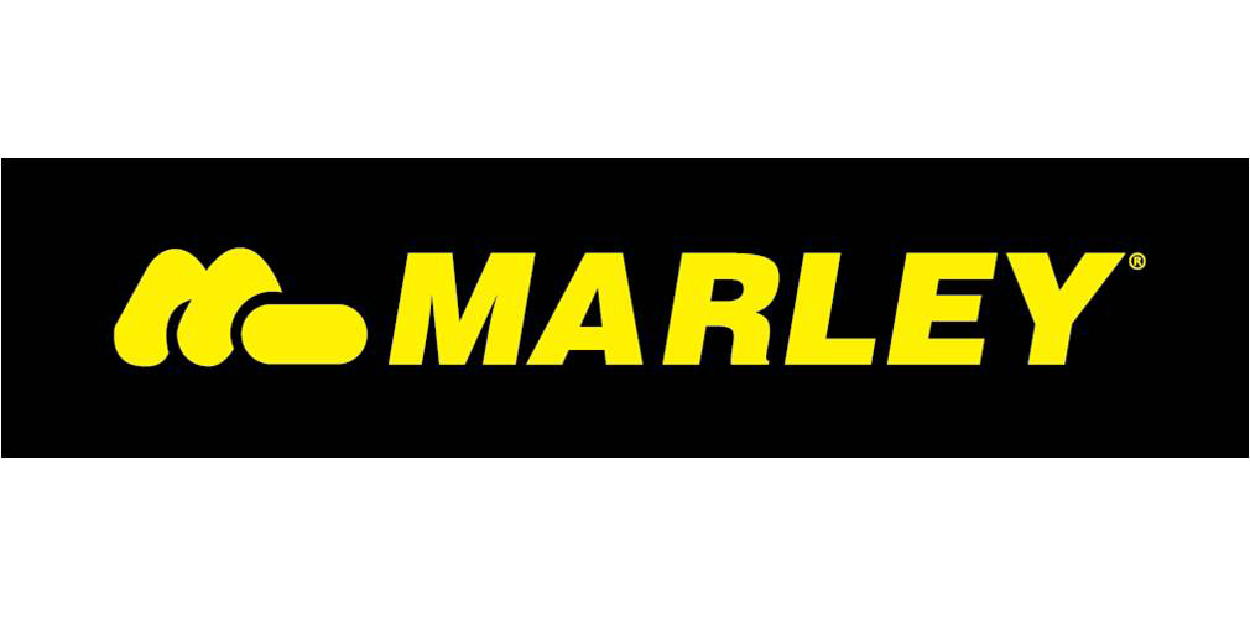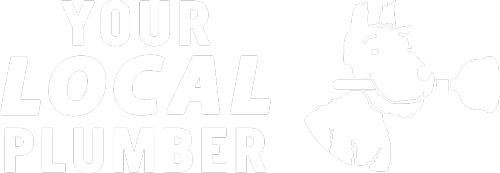Several of our plumbers are also leak detection experts. Our team use acoustic and pipe-tracing technologies to find and fix water main leaks to give you the best of both worlds when the worst happens.
Call Today 09 973 4973 or
Leak Detection: A Comprehensive Guide
What’s the Problem?
We specialise in Leak Detection
Our water leak detection services are second to non. We’re Your Local Plumber, and we know that a water leak can be an absolute nightmare.
We can help you find your leak—and fix it—so you can get back to your day-to-day life in no time. It doesn’t matter if you need North Shore, East, South or West Auckland leak detection.
When you reach out to us, we will determine the source of the leak. It could be from either a pipe or a tank. We will then give you a prompt quote for both detecting and repairing it.
As people live increasingly busy lives, it’s easy to overlook signs of underground water leaks in your home water system. From your water supply and hot water cylinder to washing machines and water pipes, any component can develop leaks that not only increase water usage but also pose health risks. Musty smells around laundry areas or basements can be a telling sign that water is seeping where it shouldn’t be.
Our expert leak detectors are equipped to handle all kinds of issues, ensuring your home stays dry, healthy, and efficient. Don’t let unnoticed leaks escalate into bigger problems; give us a call for a comprehensive leak test that could save you both stress and money in the long run.
Your Local Plumber offers water leak detection Auckland wide, so give us a call to make a booking for a leak test!
At Your Local Plumber, we understand that dealing with a water leak can be stressful. Our leak detection services are designed to locate and fix leaks quickly and efficiently. We use advanced detection equipment to ensure that every water leak is found, no matter how small.
Knowing how to find a leak in a water tank or any part of your plumbing system can be difficult. Our experienced technicians are skilled in pipe tracing and sub surface detection. Using these techniques, we can perform surface detection to accurately locate leaks and address any leak issues that arise.
Our detection services go beyond just finding leaks. We also offer a thorough leak test to ensure the integrity of your entire plumbing system. Whether it’s a leak detected in a residential or commercial property, our team is ready to help. We consider environmental variables that could affect your plumbing, ensuring a comprehensive inspection.
For residents, we provide specialised water leak detection in Auckland and leak detection services. If you’re facing a watercare leak or need leak detection west auckland, our local expertise ensures fast and effective solutions. We use advanced leak detection equipment and to cover a wide area with precision.
When we identify a leak property, our primary goal is to resolve the leak efficiently. Our process of locating a leak involves detailed investigation to investigate water leakage points and address them before they escalate. Whether it’s a minor drip or a major leak issue, our team provides the necessary repairs to protect your home.
Beyond detection, we educate homeowners on preventing future leaks. This includes recognising signs like damp carpets, high water bills, or unusual noises from pipes. Early detection can prevent costly repairs and maintain a healthy living environment.
Your Local Plumber is committed to delivering the best leak detection services throughout Auckland New Zealand. Contact us today for a professional assessment to ensure your plumbing system is secure and efficient.
Here’s how we do it:
We use pipe locators and AquaScopes to detect underground leaks. These tools help us pinpoint the location of the leak so we can find it and fix it quickly.
We also use manual testing methods like digging holes around your property and using probes to check for leaks. If it doesn’t work, we’ll check with an AquaScope again to find other possible reasons for water loss on your property.
What is Leak Detection?
Leak detection is a smart, efficient way of knowing where to look for a leak on clean water pipework. Our highly experienced team is and always will be our best resource, and we can use several technologies in this process.
Leak detection won’t repair a leak, but it can help us locate where a leak is coming from. Whilst we cannot guarantee that leak detection will always find the source of a problem, we will work with you until the leak is fixed.
When we have detected leak at your property, we can often repair it during the same visit. Even if this is not possible, we can usually return within 24 hours.
Here are the ways we carry out leak detection. A qualified plumber will professionally manage your project, which is likely to involve at least 2 of these technologies. Our team are happy to discuss your individual project needs.
Services
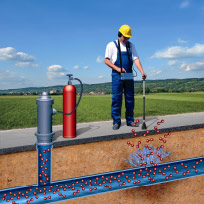
Pipe Locator
We can use a device to locate where the entire pipe is buried if it is made of metal. This device can trace the pipe from the water meter all the way to your house. Even if your pipework is plastic, we may use trace wire to help with identification.
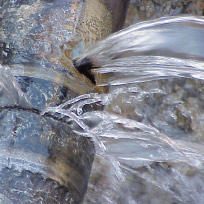
AquaScope
Our technician will use state-of-the-art acoustic technology to amplify the sound of your leak beneath the ground. Effective at a depth of at least 1 metre, we can hear through dirt, grass, asphalt and concrete in most situations. Our tools can identify the pipe’s material in many cases, making repairs easier before excavation. This technology is suitable for medium to large leaks in areas where traffic and noise do not interfere with the reading.
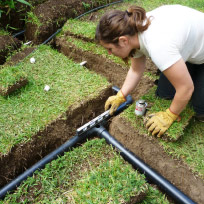
Other Testing
Because we’re qualified plumbers, we can also use a range of manual tests to help pinpoint the area of your water main that is at fault. Tests include checking the meter, isolating the water main, and inspecting toilets, cylinders, and taps to find the leak.
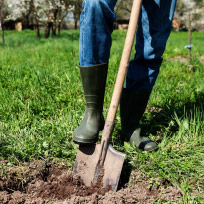
Digging
Sometimes the old methods are simply the best. We may use test pits to identify leak locations and shorten the time needed for repair.
Reasons you might have a water leak in your house
Introduction
Water leaks are a common problem in most homes. Many things, like broken pipes or even burst water heater tanks, can cause them. If you see signs of a water leak, contact us right away to repair it before it gets worse.
Wet spots in your yard
You should also be on the lookout for wet spots in your yard. If you find a puddle or pool of water, check it out further. Check for wet areas around your house and garage instead of assuming it’s rainwater. When you’re searching, watch for signs of water damage on your home. This could mean there’s a leak or previous water issues.
If there are any indications that water has been leaking into or around your home, call an expert plumber immediately!
Leaking faucets, showers or toilets
Leaking taps, showers or toilets can be a sign of a bigger problem. If you notice a leak, contact us right away to have it fixed and prevent further damage to your home.
If you don’t have a plumber but would like one, we are here to help! We will send one over immediately to fix the issue for you.
Other signs that there might be water problems in your house include:
- Damp carpets and walls
- High water bills
High water bills
You may have a water leak if your water bills are higher than normal. To check, look at your water meter for movement or nearby ground leakage.
If you think there might be a leak in your house, check your recent bills for any signs. If the bill seems unusually high for no reason, this could be an indicator of a leak somewhere in the house.
Water leaks can cause many issues, including costly repairs for damaged floors and walls. They can also lead to health problems like asthma or allergies because of mold growth. High bills are another consequence of water leaks.
Dripping water meter
If you see water dripping from the meter or your water bill has changed, this is probably the cause. Corrosion around the connection where the meter is connected to your house causes most meter leaks. If you suspect that this is the problem, call a plumber to take care of it.
If you’ve noticed a change in your water bill and can’t figure out why, check the meter first. You can easily spot most meters outside the house near the street or sidewalk. If you don’t see any leaks or issues with the meter, check for leaks where it connects to your house.
Damp and/or mouldy walls
If you notice mould on your walls or in your house, it is likely that there is a water leak somewhere in the building.
Mould and dampness can cause health problems and allergic reactions in many people.
Mould and dampness are signs of a water leak. You notice mould on your walls or in your house, it is likely that there is a water leak somewhere in the building. Mould and dampness can cause health problems and allergic reactions in many people.
Foundation cracks
Foundation cracks can be caused by a variety of reasons, including:
- Age. Older homes are more likely to develop foundation cracks because the materials used in their construction were less resistant to moisture than modern ones.
- Rainfall. Newer homes may develop foundation cracks in response to heavy rain or snowfall, but this only happens if the structure has already been damaged and weakened by other factors.
- Water leaks. Leaking pipes or other plumbing problems can cause water damage and rot that causes your home’s foundation to crack over time.
Foundation problems. The foundation of your house is responsible for supporting everything above it, including the walls, ceiling and roof. If there are cracks in these areas, moisture can soak through into your basement or crawlspace.
A toilet that won’t flush properly
Another common sign that you have a water leak is if your toilet won’t flush properly. This may be because there is a blockage in the pipes, which can be caused by something as simple as too much toilet paper or as complicated as roots growing into them from tree roots above ground.
If this happens to you, don’t panic. There are a few things you can do before calling in an expensive plumber. First of all, check if there’s anything clogging up the pipes such as hair or grease build-up.
If nothing is blocking up your pipes and the toilet still won’t flush properly, it may be because there’s a problem with the water pressure. This means you need to check if there’s anything leaking from somewhere else in your house that could affect it. For example, if there are signs of dampness under sinks or around bathtubs, these could cause problems when trying to use your toilet.
Water seeping out of pipes
If you see water seeping out of your pipes, it’s a sign that there is a leak. If this happens, call a plumber. Don’t try to fix the problem yourself—you could make things worse and end up with thousands of dollars in repair bills.
If you’re not sure if your pipes are leaking, look for water stains on the floors or ceilings around your house. These might indicate that there is a leak somewhere in the plumbing system.
Moisture on the floor near baseboards and under carpets
If you notice moisture on the floors near baseboards or under carpets, this could be a sign of water damage. If a pipe has broken or burst in your home, it can cause serious damage and put your belongings at risk of being destroyed by mould and mildew.
There are several sources for water leaks around the house:
- You may have a leak coming from the main water meter outside. This is easy to spot as there will be wet spots on the ground where you see an accumulation of snow melt or rain.
- Water leaking from toilets and taps often does not cause severe damage but may lead to other issues such as clogged drains if left untreated for too long.
Hot spots on the floor
Hot spots on the floor are a sign of a water leak. A hot spot is a sign of a water leak because the water is heating up, and that means something is wrong with your plumbing.
If you notice a hot spot on your floor, it’s possible that there’s some kind of problem with your plumbing system. The most common cause of this type of problem is an undetected leak in one or more pipes inside the walls or under the floors of your home.
This sort of plumbing problem can be serious, because if left unchecked it will result in higher utility bills and even damage to your home. While it is possible that a hot spot on the floor is caused by something other than an undetected leak (such as a faulty thermostat), there are several reasons why this might happen. One reason is that your thermostat may be set too high for the room where it’s located.
If you notice any of these signs of a water leak, call us immediately.
If you notice any of these signs of a water leak, call us immediately.
- A sudden increase in your water bill
- Unusual noises or sounds that seem to come from the pipes or toilet
- A stain on the ceiling or wall behind your toilet (this could be a sign of an overflowing toilet)
- Water stains on the floor in areas where there are no appliances or fixtures (this could be a sign of a leaking pipe)
There might be a water leak in your house. You should find out if your pipes are leaking or not.
The first thing you should do is call a plumber. If you’ve never heard of a leak detection specialist, this is someone who will check your pipes for leaks and tell you how much it will cost to fix them. If there are other issues with your water system, they may also be able to help repair those problems.
If you think you have a water leak, it’s important to fix it as soon as possible. Not only can it cause damage to your home or property, but also the longer it goes on, the more expensive it will be for repair. If you’re not sure if there is a leak in your home, take these steps:
Go around your house and check all taps and toilets for drips. Remember that this can be an easy fix if caught early (i.e., before any significant damage occurs).
Take note of any wet spots on the floor or walls in various rooms throughout your house (i.e., bathroom). If there are no visible leaks through windows or doors where they might have been caused by rainwater entering through cracked window seals or door frames then look at pipes behind furniture such as bookcases and cabinets where they would not be visible unless specifically inspected closely along with other areas like laundry rooms basements bathrooms kitchens etc.
Suppliers
